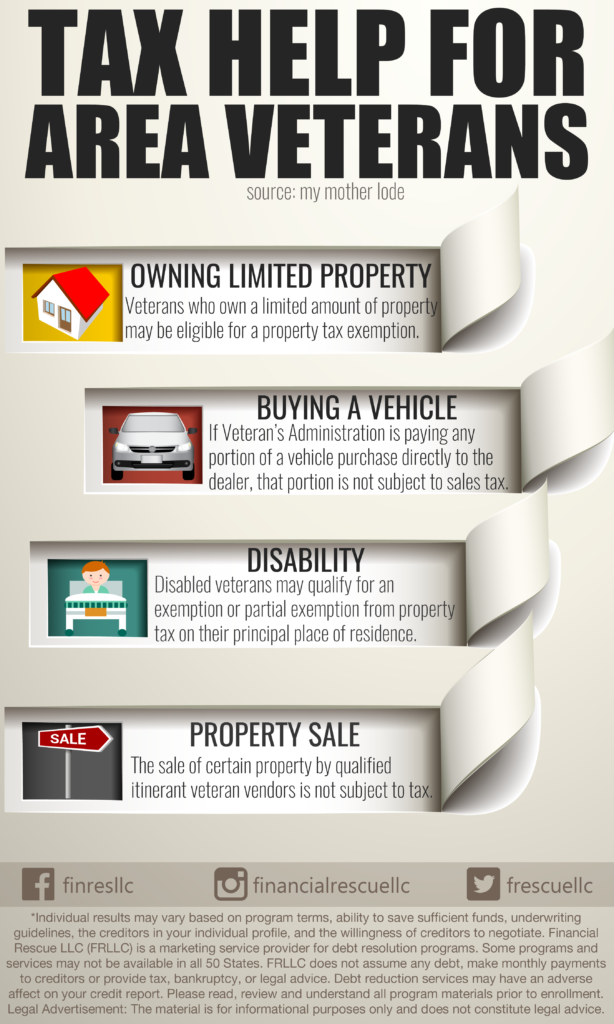If you have served in the U.S military, then you are eligible for some tax breaks and benefits meant specifically for veterans. I’ve put together this tax guide for veterans to better educate those looking for such tax information.
This is the least you deserve for putting your life on the line for the country. You’ve done your bit for nation and now it’s time that you are compensated for it; you deserve all the benefits and leeway that you are entitled to.
So, what are the benefits and exemptions you are entitled to as a veteran? We discuss that in this ultimate tax guide for veterans.
The Eligibility Criteria for Veteran Tax Benefits
To be eligible for the tax benefits available to veterans, a veteran should have done active military service for at least a continued period of 24 months. Additionally, they should have been honorably discharged from the military.
To make things clear,active serviceincludes full-time service in the Army, Coast Guard, Navy, Marine Corps, and Air Force; it may also include retired/discharged commissioned officers of the Environmental Services, the Public Health Service, and the National Oceanic and Atmospheric Administration.

In addition to the veterans meeting the above criteria, other people eligible for veteran tax benefits include parents, children, or spouse of a disabled or deceased veteran.
Now that you know the eligibility criteria for veteran tax benefits, we can move onto the tax benefits available to veterans in the U.S today.
The Tax Benefits Available to Veterans
The federal government provides many tax benefits and breaks to veterans and their families. Following are some of the most commonly availed veteran tax benefits:
- Housing Grants
- Disability pension
- Compensated Work Therapy Program
- Disability Compensation
- Life Insurance
- Dependents and Survivors
- Education and Training Allowances
These are benefits available to veterans that are not taxed. In order words, a veteran does not need to report these benefits as income when filing federal tax returns. Let’s take a detailed look into these veteran tax benefits.
1. Disability Pension
Paid to veterans who participated in war, this benefit is given to veterans who are 65 or older and have a limited or no source of income; this typically includes veterans who become permanently disabled due to a non-service-related cause or incident.
In addition to the disability pension, housebound or highly-disabled veterans are paid an additional Aid and Attendance (A&A) benefit.
This additional benefit or payment is provided to veterans who need the attendance or assistance of another individual in their daily activities.
The best thing about these benefits is that they are both exempt from not just federal tax, but also from state income tax.

2. Disability Compensation
Veterans with a service-connected disability are paid this compensation. This benefit is typically provided to veterans who developed a disability while performing a service-related task or duty.
Like disability pension, this benefit also exempts veterans from having to pay federal to state income tax. Additionally, they are some situations in which a veteran can claim a tax refund.
3. Education and Training Allowances
The purpose of these allowances is to make it easier for veterans to graduate or undergraduate training and on-the-job training.
These allowances are available to veterans who qualify for the Post-9/11 GI Bill help.
The eligibility criteria for this bill includes 90 days of active military service, honorable discharge, or discharge with service-connected disability.
The aid you receive from the GI Bill is not taxable and there is no need to declare it as part of your income.
4. Dependents and Survivors
Surviving dependents of a deceased veteran are offered a number of monetary benefits; these include, but are not limited to, the following:
- Dependency and Indemnity Compensation Payment of VA—a flat-rate payment made monthly and adjusted for inflation over time
- Pension of the deceased veteran paid to surviving spouse and dependent children with a low income
- A one-time gratuity payment made to surviving dependents to help them cope with financial hardships
All of these benefits are exempt from taxation. For any survivor benefit not mentioned above, you should confirm with the relevant federal and state authorities to know their exact tax status.
5. Life Insurance
The purpose of life insurance is ensuring the welfare of a veteran’s family. Following are some of the coverages that veterans may qualify for:
Veterans’ Mortgage Life Insurance—This provides disabled veterans who are approved for Housing Grant with mortgage protection
Service-Disabled Veterans’ Insurance—This provides veterans with a service-connected disability with life insurance coverage. Completely disabled veterans are eligible for greater coverage
Servicemembers’ Group Life Insurance Traumatic Injury Protection—Servicemembers who suffer a physical loss, such as a loss of eyesight or limbs, are provide payments under this coverage
The proceeds from these life insurances coverages are not subjected to tax.
6. Housing Grants
Adapted housing grants are available to certain disabled veterans and servicemembers. An example of this is the SAH grant.
Designed for veterans with a service-connected disability, the Specially Adapted Housing (SAH) grant provides the veterans with a way to build or modify their home to meet their special or adaptive needs.
Under this program, the maximum grant that can be given to an eligible veteran is $81,080.
Another housing grant available to disabled veterans is the Special Housing Adaptation (SHA) grant which provides a maximum grant of $16,217.
The main purpose of housing grants is to ensure greater mobility of veterans with service-connected disability in their homes. The tax benefit of these grants is that they do not need to be reported as a taxable income.
7. Compensated Work Therapy (CWT) Program
This benefit is provided to veterans who cannot work and are unable to support themselves.
Typically, this includes veterans with a history of homelessness, substance abuse, and mental illness. Payments received by veterans under this rehabilitation program do not need to be reported as taxable income.
These are some of the benefits available to veterans that are not taxable. However, there is veteran benefits that are subject to tax.
This is retirement pay. Military retirement pay based on age or length of service is considered taxable income. If you want to find out more about the tax that applies to these benefits, then I’ll gladly connect you with one of our veteran resources!
Common Tax Questions Regarding Veterans:
VA and Social Security disability payments are tax-free in all states. On a federal level, VA disability payments aren’t taxable at all
Disability Pension, Disability Compensation, Education and Training Allowances, Dependents and Survivors, Life Insurance, Housing Grants, Compensated Work Therapy (CWT) Program




